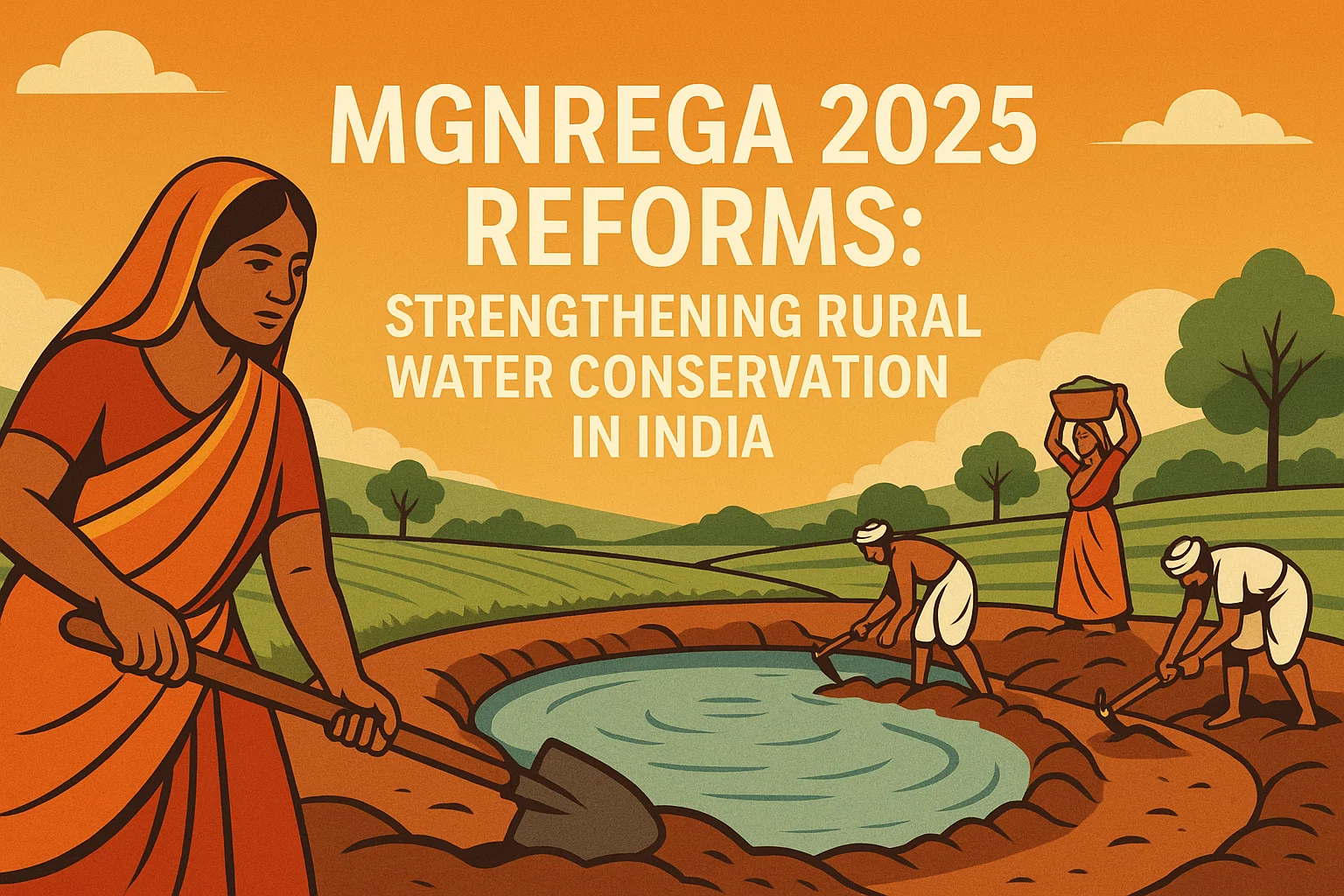Font size:
Print
Reforming Indian Civil Services: Urgent Reforms for a Stronger Democracy
Context:
In recent times, the Indian Civil Services have faced scrutiny due to structural and functional challenges. Highlighting the urgent need for reform, Cabinet Secretary T. V. Somanathan and the Prime Minister addressed these issues on Civil Services Day (April 21).
More on News:
A high-level panel led by Shri Suresh Prabhu, with experts like TSR Subramanian, S. Jaishankar, Shekhar Gupta, and K. Vijay Kumar, has proposed a comprehensive roadmap to make the bureaucracy citizen-centric, accountable, and performance-driven.
Foundational Frameworks: Merit System vs Spoils System

- Merit System:
Broad Context for Reform
- India is undergoing a socio-economic transformation with rising citizen expectations.
- The guiding vision is “Maximum Governance, Minimum Government”.
- Reforms are needed to build a bureaucracy that is skilled, open, converged, and connected.
- Introduced in 1858 during British rule through the Indian Civil Service.
- Currently maintained by the Union Public Service Commission (UPSC) through rigorous examinations.
- Promotes neutrality, professionalism, and independent policy advice to the political executive.
- Spoils System:
- Based on political patronage and loyalty; originates from the U.S.
- Replaced by the Pendleton Act of 1883 in the U.S.
- In India, remnants exist through the politicisation of appointments, which threatens bureaucratic autonomy.
Significance of Civil Services in Democratic Governance
- Pillars of Democracy:
- Ensure free and fair elections and a smooth transfer of power.
- Provide continuity of governance during extraordinary circumstances like President’s Rule.
- Policy Formulation and Implementation:
- Serve as a repository of institutional memory.
- Provide objective policy advice and execute public programmes, laws, and regulations.
- Public Service Delivery:
- Implement welfare schemes, relief operations, and crisis management.
- Act as the fulcrum of citizen service delivery in rural and urban India.
Current Challenges Facing Civil Services
- Erosion of Neutrality:
- Rising political interference in transfers, postings, and decision-making.
- Leads to bias in policy execution and undermines public trust.
- Generalist Bias:
- Civil servants often lack domain-specific expertise.
- Hampers ability to manage complex, technical development challenges.
- Corruption and Weak Accountability:
- Pervasive corruption across levels with inadequate punitive action.
- Deficient mechanisms for grievance redressal and transparency.
- Lack of Tenure Stability:
- Frequent transfers disrupt project implementation and policy continuity.
- Undermines institutional accountability and long-term planning.
Comprehensive Reform Measures Suggested
- Skilled Bureaucracy: Capability for Modern Governance
- Domain Expertise: Encourage development of sector-specific skills aligned with departmental needs.
- Project Management Competence: Train officers in legal, commercial, and financial negotiation and contract management.
- Digital Literacy: Promote e-governance, mobile governance, and data-driven decision-making.

Administrative and Political Reforms to Complement Bureaucratic Reforms
- Electoral Reforms: Improve the integrity of political processes to reduce bureaucratic politicisation.
- Judicial Reforms: Expedite dispute resolution and enhance rule of law in governance.
- Political Reforms: Ensure transparency, accountability, and ethical leadership in public life.
- Capacity Building at the Grassroots: Strengthen soft skills, citizen engagement, and field-level administration.
- Converged Bureaucracy: Breaking Government Silos
- Horizontal Convergence: Foster inter-departmental coordination and multi-sectoral collaboration.
- Lateral Communication: Facilitate real-time information sharing across ministries and sectors.
- Shared Services Model: Adopt shared infrastructure for IT, procurement, and finance to improve efficiency.
- Open Bureaucracy: Promoting Transparency and Innovation
- Open Policy Formulation: Collaborate with civil society, think tanks, and academic institutions.
- Participatory Governance: Leverage social media, crowd-sourcing, and public consultations.
- Public-Private Partnerships (PPP): Promote a culture of innovation and collaborative governance in service delivery.
- Connected Bureaucracy: Building Strategic Networks
- Global Learning: Adapt international best practices and build cross-border policy networks.
- Inter-State Cooperation: Encourage sharing of best practices among states to promote administrative innovation.
Process Re-engineering: Simplify administrative rules and accelerate digitisation of procedures.


